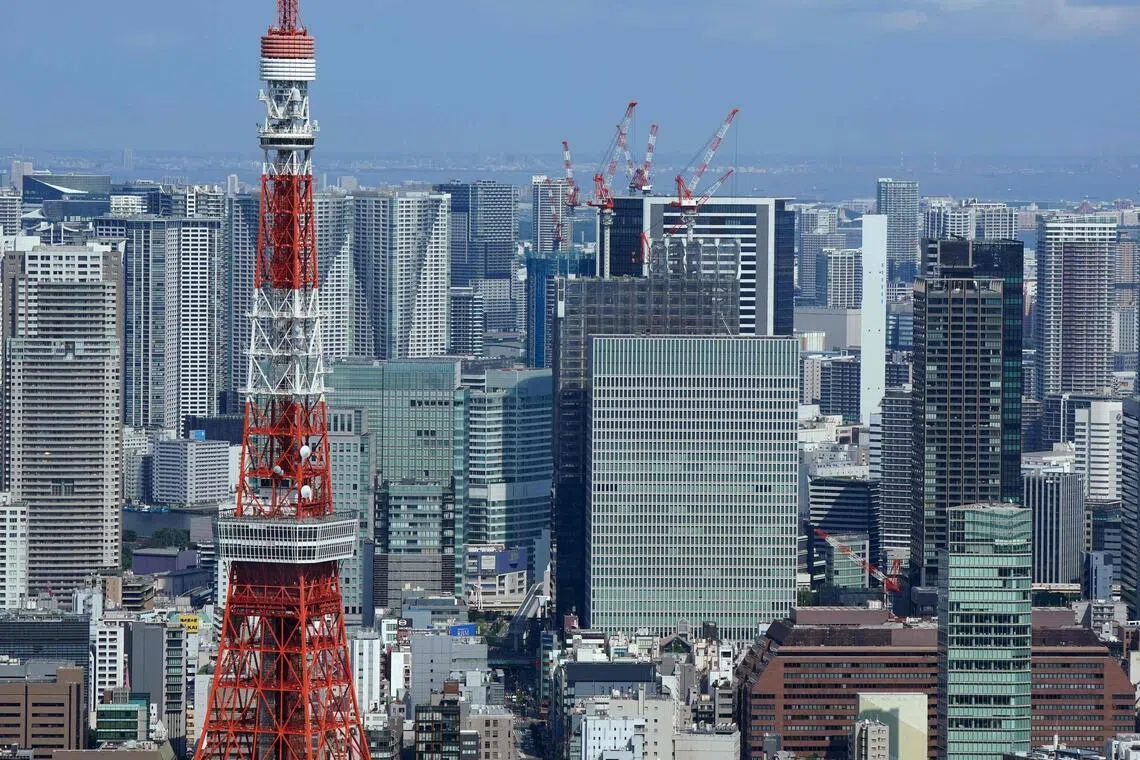US hedge fund Verdad plans to launch new Japan small-cap fund
Sign up now: Get ST's newsletters delivered to your inbox

Hedge funds with exposure to Japan have fallen back into favour amid a campaign by the Tokyo Stock Exchange to improve profitability and shareholder value for listed companies.
PHOTO: AFP
Follow topic:
- Verdad Advisers plans a new Japanese equity fund focusing on small-caps, targeting market caps over US$400 million, seeking capital inefficiencies.
- This move follows the success of Verdad's existing micro-cap funds, with 39 per cent returns in 2025 and US$300 million assets.
- Limited liquidity and less English disclosure pose challenges, but Verdad aims for over US$1 billion in assets, hiring local analysts.
AI generated
TOKYO – Boston-based hedge fund Verdad Advisers is planning to launch a new Japanese equity fund focusing on small-cap companies, another sign that global investors are looking beyond blue chips to unlock extra returns from the nation’s reawakened stock market.
The fund, which may launch as early as 2025, will continue the strategy of the investment company’s existing two micro-cap funds by looking for capital inefficiencies like debt-heavy or cash-heavy balance sheets, Verdad founder Daniel Rasmussen said in an interview on Sept 17.
The new fund will target larger market caps of more than US$400 million (S$514.5 million), he said.
“If you go down into the thousands of small stocks, you can find these much more extreme profiles, much more extreme opportunities,” Mr Rasmussen said. “Once you go up into large cap, the market is very efficient. It’s hard to make big profits.”
Hedge funds with exposure to Japan have fallen back into favour amid a campaign by the Tokyo Stock Exchange (TSE) to improve profitability and shareholder value for listed companies.
Some have turned to smaller stocks, where improvements in capital efficiency have lagged and valuations are low.
Activist investor Asset Value Investors said earlier in September it plans to add stakes in small- and mid-cap companies.
Japan small caps have been on a tear. A gauge of smaller stocks has outperformed the broader Topix this year with a gain 19 per cent, compared with 14 per cent for the index. The MSCI Japan Small Value index has risen more than 30 per cent.
Take Verdad’s two existing funds, which have returned 39 per cent in 2025 through the end of August.
The performance has pushed their combined assets under management to US$300 million – roughly a quarter of Verdad’s total – according to Mr Rasmussen.
For the new fund, he is aiming at more than US$1 billion in assets over the next few years.
As part of its expansion plans, Verdad plans to hire one to two Japanese analysts specialising in both quantitative and fundamental analysis, Mr Rasmussen said.
Family offices and institutional investors across Europe and the US are Verdad’s client base, he said.
Even so, roadblocks to the small-cap strategy are many. Limited liquidity restricts the size of holdings an investor can build, while smaller-sized companies have less English-language disclosure.
A survey by the TSE backs this up, showing only 37 per cent of companies with less than 25 billion yen (S$217 million) release English statements as at December 2024, compared with 63 per cent of companies with market caps of 100 billion yen or more.
While Mr Rasmussen says he sometimes needs to further explain the Western concept of capital efficiency to management, diversifying portfolios across 50 to 100 stocks gives him leeway for patience.
“Companies that you never thought would make changes are starting to become more and more shareholder friendly,” he said. BLOOMBERG

